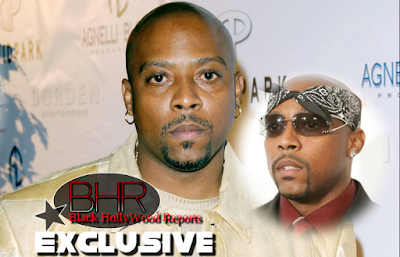Isaiah Washington & Tequan Richmond is back with power acting role in "Blue Carprice" based on the true story The DC Snipers Director Alexandre Moors
 |
| Isaiah Washington & Tequan Richmond is back with power acting role in "Blue Carprice" |
In the end, the killings were the result of a bizarre, makeshift father-son relationship between 17 year-old Lee Boyd Malvo and John Allen Muhammad. To this day, the media describes their acts as “senseless.”
In the film’s version of events, Muhammad and Malvo first meet on a beach in Antigua. Lee (Teguan Richmond), whose gaping loneliness is revealed more through body language than words, has been abandoned by his mother. John (Isaiah Washington), simmering with misplaced, vengeful anger, is “vacationing” with his children in violation of a restraining order against him.
John, for want of a better word, “saves” the young man from the surf. Five months later, the duo are in Tacoma, Wash., where John introduces Lee as his “other” son to his girlfriend (Cassandra Freeman).
Director Alexandre Moors fashions a disturbing aura around John and Lee. A drive down a Tacoma street through the suburban neighborhood where John grew up triggers sad, angry memories of slights small and large; in his view, everyone and everything conspired against him. Ominously, they drive by the house of a woman who testified against John in a child custody case.
After a chance meeting with an old friend, Ray (Tim Blake Nelson), they end up in the woods firing off a pistol. Watching Lee shoot, Ray calls him a natural. Ray then whips out a “widow maker” assault rifle. Lee takes some shots and shows he’s found something he’s good at.
When there’s a dispute over use of his girlfriend’s motorbike, John reverts to his tired, “everybody’s a liar and against me” attitude. Not surprisingly, she kicks him out. It’s a tribute to the actors and the director just how profoundly unpleasant it is to be around these people, even though we know it’s only a movie.
 |
| Isaiah Washington & Tequan Richmond |
Some of the actual killings are briefly depicted, but “Blue Caprice” is more about the relationship between two toxic personalities and how a chance meeting dangerously amplified their shared anger and isolation.
When John ties Lee to a tree out in the middle of nowhere, his betrayal of their relationship almost becomes too painful to watch. Afterwards, he tells his “son” that words are not enough, that if he loves his “father,” he has to prove it. Lee is ready to take those words to heart.
John is less concerned with whether or not Lee even shot the right person; he is driven by free-floating rage and intoxicated by the fact that they are “invisible” – they can kill again and again without fear of being caught. In his mind, he can get back at “them,” at society, at the people that took away his children. There really is no difference.
 |
| Isaiah Washington & Tequan Richmond Working |
It chills to the bones listening to Lee read out loud from a military manual about the logistics and role of the sniper in warfare – it’s just as important to “instill fear and confusion” as it is to take out the target.
John buys an old blue Chevy Caprice off a used car lot. He retrofits the truck of the former police vehicle into a mobile sniper’s nest with room to lay down in the trunk and gun hole in the rear.
 |
| Isaiah Washington being film while driving for the movie |
On the radio, a news flash of murder warns a white van may be involved. Calls to 911 from the murder scenes reveal descriptions of terror and chaos. John talks about shooting six people a day, with plans to escalate to bombings.
When he tells Lee he wants to recruit other disaffected kids and send them to other cities to do the same thing, he sounds like a black Charles Manson, better organized and without the drugs.
One scene towards the end shows Moors at his most poetic: John and Lee driving over desolate roads, past late night gas stations and parking lots, through sparsely populated towns. There’s no place to call home. On the soundtrack, Arvo Pärt’s achingly somber choral piece, “Beatus Petronius” – “May Blessed Petronius / intercede on our behalf / with Him who has given us / the true blessed prize, / so that every plague may cease.”



















Comments